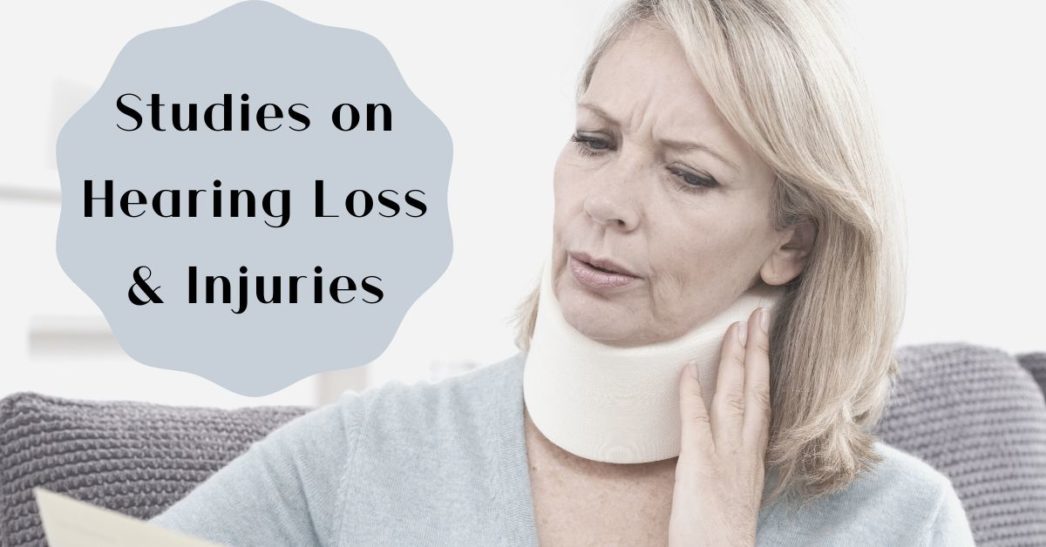Hearing Impairment: Symptoms and Prevalence
A multivariate analysis correcting for all variables but two (hearing capability, and accident susceptibility) was conducted in 2016. For hearing capability, all participants were asked to assign one of the following monikers to describe their personal hearing capability: “excellent,” “good,” “a little trouble,” “moderate trouble,” or “deaf.” To measure accident susceptibility, those same participants were queried about whether or not they were injured in an accident in prior 3 months. All data was put through a cross-sectional examination to mitigate data pollution from other potential correlations like age or gender. Whether that accident was related to driving, a leisure activity, or a workplace activity was also observed, but this information is not relevant in the following analysis that details the correlation between ability to hear and susceptibility to unintended injuries.
This United States national health investigation found that approximately 1 in 6 people rate their hearing ability to be lesser than “good” or “excellent”. The study comprised of 6.6 million people who are 18 years or older and reside in the US and had suffered accidental harm due to an unintended injury during a time spanning 2007-2015. Higher rates of injury correlate precisely with increased difficulty in hearing. Anyone who said they experienced “a lot of trouble” with hearing had approximately twice as much susceptibility to unintended injury. Unintended injury is a leading cause of mortality in America, therefore a reduction in hearing effectiveness would also correlate with a proportional reduction in life expectancy.
“Impaired hearing” and “accidental injuries” are likely to share a causal connection, but certainly share a correlation according to this study.
In early 2009, a publication known as “Ear and Hearing” put forward a study where the ability of smoke alarms to wake people with hearing loss was examined. Many different smoke alarms were studied. Effects like “flashing lights” were shown to have little effectiveness when trying to wake someone sleeping. A “pillow vibration” was shown to be slightly more effective, but was still inconsistent. Low frequency smoke alarms were discovered to have the most consistent and earliest success at waking not only sleeping individuals of all walks of life, but were found to work better for those with impaired hearing as well – surprising many people involved in conducting the study.
Adding an alarm to source of danger is always useful, but sometimes these alarms can be ineffective, and some sources just can’t feasibly be fitted with a loud alarm. A call for help in the distance, a soft cry of a baby, or a faraway disaster siren can easily be missed by those with hearing impairments – making them more vulnerable to potential negative outcomes associated with these sounds. Lacking the ability to hear effectively could pose a threat not only to those with hearing difficulties, but could inhibit their ability to warn the ones they love who may be asleep or unaware.
Hearing Loss: Diagnosis and Treatment
You may have heard others mention that the television is “too loud” or that they feel like you are “yelling at them.” You may find that you miss words like “don’t” changing the meanings of important phrases, or only able to “hear” what people say when you can “see” them – meaning you are probably reading their lips without realizing it. If any of this sounds familiar to you – or you think you may have hearing problems for some other reason, consult your family physician about the issue. They can help you properly define your specific hearing issue and give you advice on how to fix it. If you do have a hearing problem, we recommend looking into some common and broad solutions like hearing aids or low frequency smoke alarms. In addition to the common solutions, we also encourage that you seek out other resources that can help you as well. A wide variety of tools and products are available today that can help anyone with impaired hearing.
Hearing loss can be scary, but it doesn’t have to affect your life too much unless you let it. Hearing aids function better than ever, can be practically invisible, and even offer the option to turn off your hearing – something everyone else will be envious of at times! Your safety and quality of life should be your top priorities, and having the proper tools will definitely help you strive towards those goals. Contact us today for an appointment!


